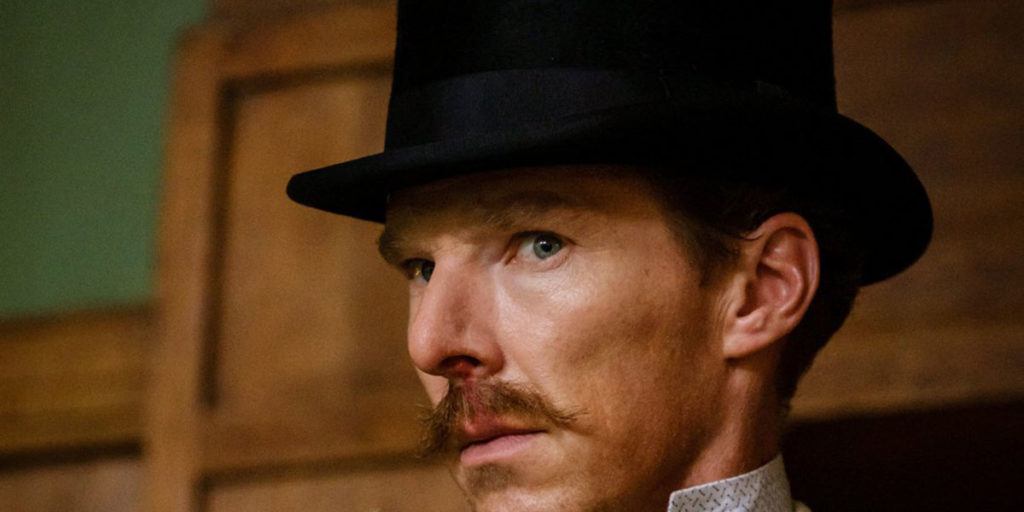The Electrical Life of Louis Wain

Image courtesy TIFF.
One of my favorite examples of obscure internet lore is how Star Trek actress Jeri Ryan indirectly contributed to the election of Barack Obama, thus changing the course of history. Similarly, if Louis Wain hadn’t existed, would the world have been blessed with the camp disasterpiece that is Tom Hooper’s CATS?
As I watched Will Sharpe’s THE ELECTRICAL LIFE OF LOUIS WAIN, I found myself boggled and charmed by its near inscrutable tone, which wavered between a dark comedy (aided by the narration of Olivia Colman), a somber meditation on the effects of mental illness, and a whimsical budding romance.
Louis Wain (Benedict Cumberbatch) is a brilliant young renaissance man and only male heir of a wealthy family. To support his widowed mother and multitude of sisters, he dips his toes in a wide range of fields, from developing electrical patents to composing experimental operas. His artistic pursuits are only a means to an end for Louis, but his unique eye immediately draws the attention of others, particularly Sir William Ingram (Toby Jones), the Managing Director of The Illustrated London News. Despite the promise of a steady paycheck, Louis rankles at the idea of such frivolous work, an attitude that antagonizes his sister Caroline (Andrea Riseborough), the de facto head of the household.
His head in the clouds, Louis traipses through life without a care regarding its practical realities while Caroline juggles the household’s responsibilities. At her wits end, she hires a governess, Emily (Claire Foy), to both tutor and guide her lively younger siblings. Possessing Mary Poppins’ kindness and endless patience, Emily is quickly embraced by the children, but her brilliant mind and norm-shattering eccentricities don’t ingratiate her to the Wain’s upper-class neighbors. Unsurprisingly, Louis falls head over heels for her, despite constant social criticism. They fit together like two irregular puzzle pieces, inherently understanding each other’s quirks and the darker moods that often accompany genius.
In recent years, I’ve become impatient with Hollywood’s slapdash approach to on-screen romance, which generally involves two conventionally-attractive white people of the opposite gender standing within five feet of each other. Sharpe’s film refreshingly departs from this pattern. It actually puts in the work required to make us believe in a relationship built on something deeper than superficial attraction or physical proximity. Such kindred spirits are Louis and Emily, in the truest sense of the word; it’s a delight to watch every one of Cumberbatch’s and Foy’s fumbling, endearing interactions.
Unsurprisingly, THE ELECTRICAL LIFE OF LOUIS WAIN begins to feel rudderless when this relationship is no longer the focus. Louis’ life falls into a cascading sequence of tragedies, and he loses himself in drawing cats (inspired by his beloved pet, Peter). Again, Sir William recognizes his friend’s worth and offers to give the illustrations a platform; the resulting public reaction catapults Louis into fame, and changes the public’s perception of an animal largely seen as vermin.
As Louis age, the narrative touches upon his family’s history of schizophrenia. It feels erratic in a way that could’ve been more sympathetic to the reality of neurodivergence, particularly in the latter part of the 19th century. His health and social standing rapidly decline. Relegated to a mental institution, Louis’ art functions as a window to his mind; his beloved country cats evolve into bold, psychedelic surrealism. Despite his miserable fate, Louis Wain’s artistic passion altered the course of history. And somehow, against infinitesimal odds, he manifested the inevitable existence of Rum Tum Tugger.